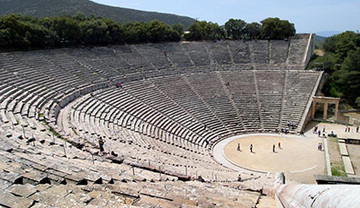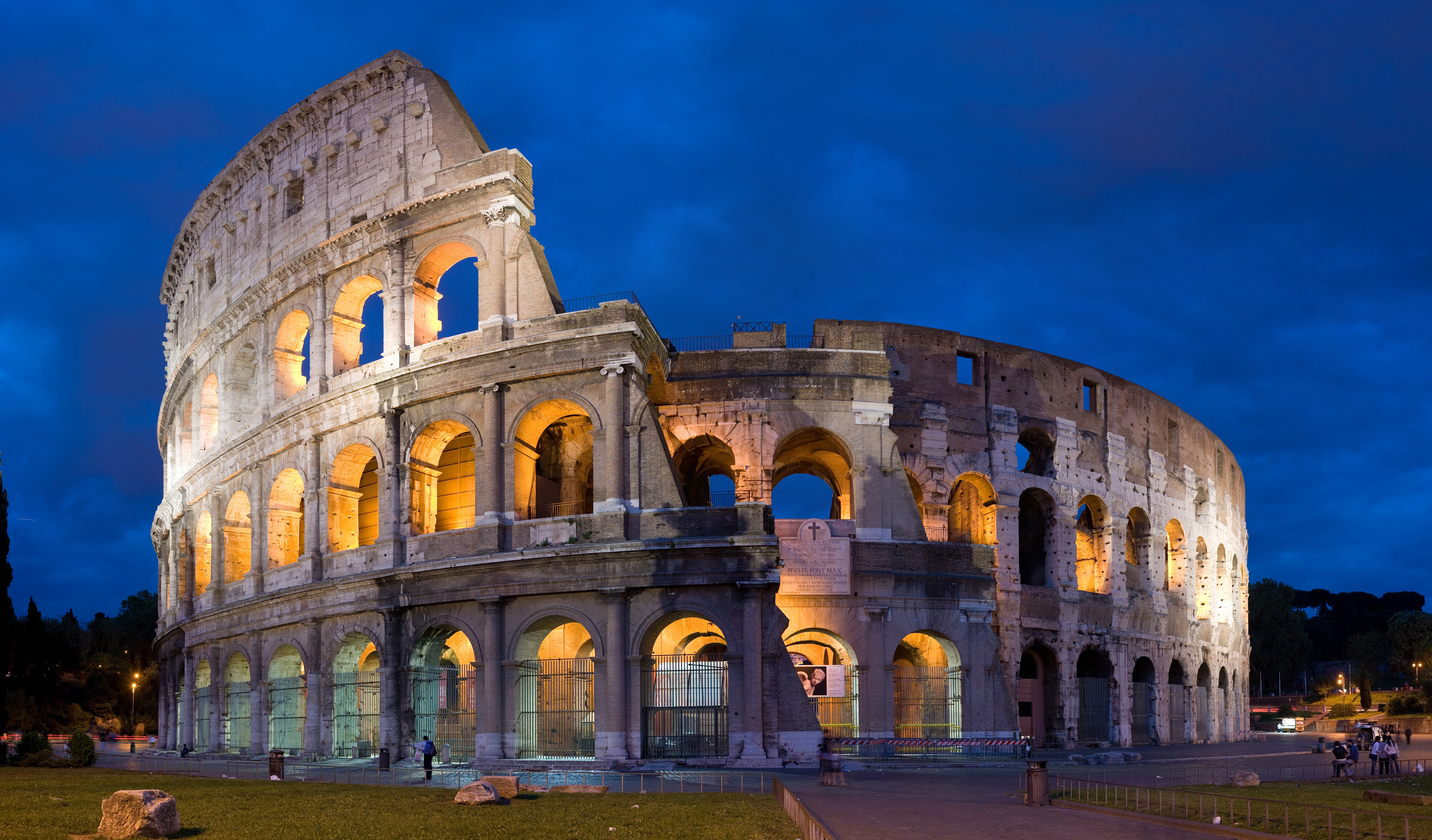
An American famous poet, John Greenleaf Whittier, once wrote in his poem:
“The Beauty which old Greece or Rome
Sung, painted, wrought, lies close to home.”
(To —-, reported in Bartlett’s Familiar Quotations, 10th ed. (1919))
This was definitely true.
Ancient Greece and ancient Rome were both well-known civilizations throughout the world’s history for their exceptional art, knowledgeable philosophers, and powerful economy. Today, people often admired and inspired by their intelligent works and success stories. Yet, what did these two ancient civilizations offer to the modern world that was left unnoticed? The major areas that the ancient Greeks and Romans had contributed to today’s world included language, government, entertainment, and architecture.

Many countries nowadays often find it important to learn English as their second or third language for the sake of communication with foreigners. English is a Germanic language with “loads of Latin-influence.” The impact began since 529 AD when “Augustus spread Christianity on the island of Britain.” Surprisingly, about 60% of the English vocabulary was rooted from Greek or Latin (Romans’ old language) such as the word “alphabet” which came from the first and the second Greek letters: alpha and beta. Greek’s language entered English in three main ways: via Latin, Greek writers, and science usage. In addition, there was an immense contribution of Greeks and Romans’ language toward English in science and technology fields. Over 90% of words in these fields were from Greek and Latin and those included symbols, scientific terms, and scientific name. Similarly, main words in government were also from Greek and Latin such as the word “Senate”, derived from Greek word “Senex”, which means “wise old man” and the word “Veto” which means “I forbid” in Latin. Clearly, Greeks and Romans’ ancient language had secretly been the parents of English.

Besides the contribution of language, Greeks and Romans were also the parents of government systems: democracy and republic. The ideas of democracy were “borne out[s] of the political struggles in the city of Athens” around 460 BCE. The word democracy (demokratia) derived from Greek word “demos”, which means the entire citizen body or as Document 5 stated as follows: rule by the people. Pericles, a great leader in Athens, once said that “Our constitution is called a democracy because power is in the hands not of a minority, but of the whole people.”

This shows that every [male] citizen, poor or rich, has direct power to vote without having to worry about their status. Yet, in that time, democracy was often seen as disorganized and caused lots of issues such as the death of philosopher Socrates in 399 BCE. This is because the citizens were too easily “swayed by a good orator or popular leader and get carried away with their emotion.” In order to avoid this kind of problem, ancient Rome created another government’s system called Republic.
The Roman Republic evolved from Greek democracy but instead of voting directly for a leader like democracy, Roman men could choose a representative for themselves whom they trust to make the right decision as a whole. As stated in Document 5, Roman republic had what called a Senate as the highest authority that runs by powerful people. The Senate had an “indirect executive power” that discussed “both domestic and foreign powers, directed the religious life of Rome, and controlled state finances.” Additionally, common citizens “were also given right to veto” Senate’s suspicious actions, in which preventing them from overpowering. Overall, the government’s systems that ancient Greece and ancient Rome developed were still well practiced by many nations today.
Not only did the Greeks and Romans brought the existence of government structure but also the source of entertainment to the contemporary world which encompassed the Olympic Games, theater, and many other physical competitions. As stated in Document 2, the Olympic Games were held every four years by ancient Greeks as a tradition to honor their gods and goddesses. The games began over 2700 years ago in the city of Olympia that consists of running, boxing, wrestling etc. As mentioned above, this game was a religious festival but now it’s just a game those “people compete for money, glory, and honor” since athleticism is a sign of strength.

In the same way, ancient Greece was also the birthplace of theater in the 6th century BCE that performed “comedy and tragedy play” in honor of Dionysus, god of wine and theater. Its playwright works “formed a foundation of the modern day’s theater.” Similar to the Greeks, Romans also offered the Gladiator games, which were “a bloody entertainment” that used “violence to entertain the masses.” Often, the wealthy people used these contests as an opportunity “to keep the poor occupied from revolt.” Accordingly, the modern day forms of entertainment got inspired by the ancient Greece and ancient Rome which had a similar performance but with a different purpose. Other than contests and theater performance, the Greeks and Romans were also honoring their gods and goddesses through building temples such as the Parthenon that contained complex and unique architecture.

As one stated, “[Greek] architects used sophisticated geometry and optical tricks to present building as perfectly straight and harmonious.” This shows that every building that was built in the ancient Greek were being well thought and plan beforehand by high-level architects. As being said, the temple Parthenon of Athens that was built in the mid 5th century BCE to honor gods, was also the inspiration for many Western government buildings today including the White House.

Again, modern day sports stadiums style were also inspired by the Roman Colosseum, where the Gladiator contest took place, with its circular shape and seated structure. Rome was also the birthplace of the aqueduct (complex water system), concrete, and roads. As the expression in Document 4 stated, “All roads lead to Rome.” This proves that Roman was the first ancient civilization to build roads as a way to link from the province in order to efficiently move soldiers and trade goods. Without a doubt, architecture area was also the field that Greeks and Romans had great influence on.

Certainly, Greeks and Romans ancient civilizations had a great influence on many major key aspects of the contemporary world; ranging from language to architecture. People should be appreciative of all the positive works that these two civilizations had brought to the modern day. Without them, the world would not be where it is today. Nonetheless, there are many more areas that the old Greece and Rome had offered to the today’s world with not much acknowledgment. What are other major areas that Greeks and Romans take part in?
“The only thing new in the world is the history you don’t know.”
(Quote by Harry S. Truman)
This is a quote to remember.
